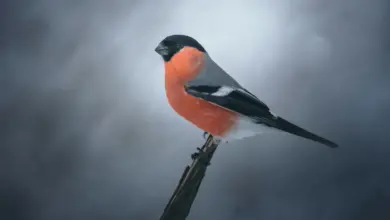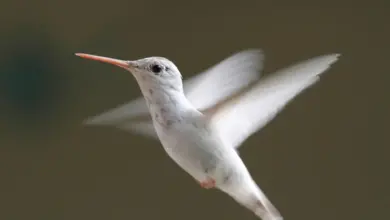Starlings (Onychognathus)
Starlings (Onychognathus)
Starlings are small to medium-sized passerine (perching) birds. Many Asian species, particularly the larger ones, are known as mynas.
Distribution / Range
Starlings occur naturally in the Old World, from Europe, Asia, and Africa, to northern Australia and the islands of the tropical Pacific.
Several European and Asian species have been introduced to these areas as well as North America, Hawaii, and New Zealand, where they generally compete for habitat with native birds and are considered to be invasive species.
These sociable birds are usually seen in flocks.
Interesting Yearly Event
In the fall, after having migrated from Russia and Scandinavia to escape frigid weather conditions, thousands of starlings gather in shape-shifting flocks called murmurations, apparently “dancing in the twilight” above England and Scotland.
Scientists can’t explain this behavior. These murmurations are manifestations of swarm intelligence. Even complex algorithmic models couldn’t explain the starlings’ aerobatics.
This YouTube video was taken of this event.
Description
Their plumage is typically dark with a metallic sheen.
The size and weight vary greatly by species.
- The shortest-bodied species is Kenrick’s Starling (Poeoptera kenricki) at 6 inches (15 cm). The largest starlings are the mynas (genus Mino) – in particular the Yellow-faced (Mino Dumont) and Long-tailed Mynas (Mino kreffti). These mynas can exceed 1 foot (30 cm) and weigh over 8 oz (225 grams).The lightest-weight species is Abbott’s Starling (Poeoptera femoralis), at 1.2 oz (34 grams).
They have strong feet and their flight is strong and direct.
Diet / Feeding
They are typically seen foraging in open country, feeding on various insects and fruits.
Several species – that live around human habitation – are quite omnivores.
Many species search for food by opening the bill after probing it into dense vegetation.
Nesting / Breeding
Most species nest in holes, laying blue or white eggs.
Calls / Vocalizations
Their vocalizations are diverse and complex. They are well known for embedding sounds from their surroundings into their calls, such as car alarms and even human speech patterns.
Species and Distribution
- Red-winged Starling, Onychognathus morio
- Range: Eastern Africa from Ethiopia to the Cape in South Africa
- Slender-billed Starling, Onychognathus tenuirostris
- Range: Africa, specifically from extreme south-central Eritrea south to central and southern Ethiopia; eastern Democratic Republic of Congo, southwestern Uganda, Rwanda, and Burundi; west and central Kenya, northeastern and southern Tanzania and northeastern Zambia and northern Malawi
- Chestnut-winged Starling, Onychognathus fulgidus
- Found in Africa: Angola, Benin, Cameroon, Central African Republic, Republic of the Congo, Democratic Republic of the Congo, Ivory Coast, Equatorial Guinea, Gabon, Ghana, Guinea, Liberia, Nigeria, Sao Tomé and Principe, Sierra Leone, Sudan, Tanzania, Togo and Uganda.
- Waller’s Starling, Onychognathus walleri
- Found in Africa: Burundi, Cameroon, the Democratic Republic of the Congo, Equatorial Guinea, Kenya, Malawi, Nigeria, Rwanda, Sudan, Tanzania, Uganda, and Zambia.
- Somali Starling, Onychognathus blythii
- Found in Africa: Djibouti, Eritrea, Ethiopia, and Somalia, as well as in the adjacent Yemen located on the Arabian Peninsula in Southwest Asia.
- Socotra Starling, Onychognathus frater
- Range: Yemen on the Arabian Peninsula
- Tristram’s Starling, Onychognathus tristramii
- Range: Israel, Jordan, northeastern Egypt (Sinai Peninsula), western Saudi Arabia and Yemen
- Pale-winged Starling, Onychognathus nabouroup
- Found in Africa: Angola, Botswana, Namibia and South Africa.
- Bristle-crowned Starling, Onychognathus salvadorii
- Found in Africa: Ethiopia, Kenya, Somalia and Uganda.
- White-billed Starling, Onychognathus albirostris
- Range: African countries: Eritrea and Ethiopia.
- Neumann’s Starling, Onychognathus neumanni
- Found in Africa: Sahel from Mauretania and Equatorial Guinea to western Sudan.




